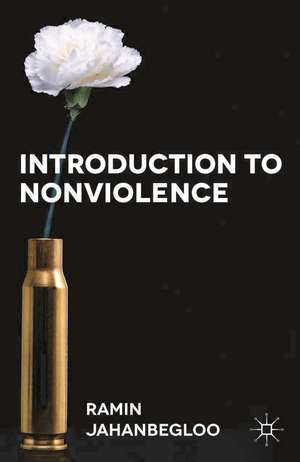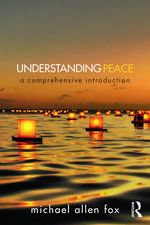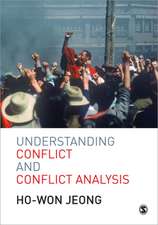Introduction to Nonviolence
Autor Professor Ramin Jahanbeglooen Limba Engleză Paperback – 10 mar 2014
| Toate formatele și edițiile | Preț | Express |
|---|---|---|
| Paperback (1) | 251.51 lei 22-36 zile | |
| Bloomsbury Publishing – 10 mar 2014 | 251.51 lei 22-36 zile | |
| Hardback (1) | 829.40 lei 43-57 zile | |
| Bloomsbury Publishing – 10 mar 2014 | 829.40 lei 43-57 zile |
Preț: 251.51 lei
Nou
Puncte Express: 377
Preț estimativ în valută:
48.13€ • 50.38$ • 40.06£
48.13€ • 50.38$ • 40.06£
Carte disponibilă
Livrare economică 10-24 martie
Preluare comenzi: 021 569.72.76
Specificații
ISBN-13: 9780230361300
ISBN-10: 0230361307
Pagini: 208
Dimensiuni: 155 x 235 x 13 mm
Greutate: 0.25 kg
Ediția:2013
Editura: Bloomsbury Publishing
Colecția Red Globe Press
Locul publicării:London, United Kingdom
ISBN-10: 0230361307
Pagini: 208
Dimensiuni: 155 x 235 x 13 mm
Greutate: 0.25 kg
Ediția:2013
Editura: Bloomsbury Publishing
Colecția Red Globe Press
Locul publicării:London, United Kingdom
Caracteristici
Will appeal to a broad readership from students on peace studies, conflict resolution, international relations, religious studies courses to policymakers and activists
Notă biografică
Ramin Jahanbegloo is an Associate Professor at York University, Canada. He is the recipient of the 2009 Peace Prize, awarded by the Association for the United Nations in Spain for his work promoting dialogue between cultures and his advocacy of non-violence. His publications include The Gandhian Moment (Harvard Press 2013) and Democracy in Iran (Palgrave 2013)
Cuprins
1. Introducing Nonviolence 2. Non-Violence in Buddhism, Jainism and Hinduism 3. Christianity and Nonviolence 4. Islam and Nonviolence 5. Philosophical Foundations of Nonviolence 6. Gandhi and Nonviolence 7. Pragmatic Nonviolence 8. Critiques of Nonviolence 9. Nonviolence in Twentieth Century 10. Nonviolence in Twenty-First Century Conclusion: Democracy and Nonviolence.









